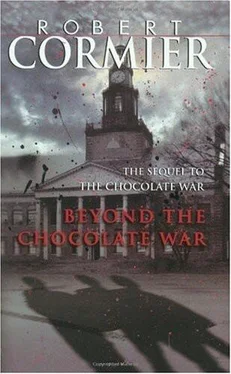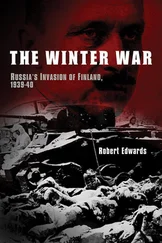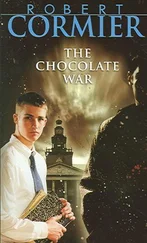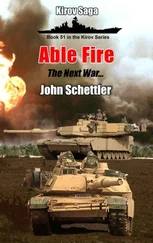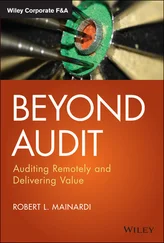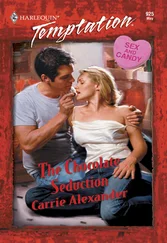Jerry was grateful for the pause, realizing that he was very much out of shape. He knew that he had to convince the Goober that he was not to blame for what had happened to Brother Eugene, hoped he could find the proper words.
"I hope you're not feeling guilty," Jerry said as he sat down, waiting for his body to calm, his heart to resume its normal silent beat. "It can't be your fault, Goob."
"I keep telling myself that," the Goober said. "But I keep wondering what would have happened if we hadn't taken Room Nineteen apart. Would Brother Eugene still be alive?"
"You can't second-guess a thing like that, Goober," Jerry said, groping for the right words. But could any words mollify his friend? "Room Nineteen happened last fall. Brother Eugene wasn't young anymore. You've got to forget the past—"
"It's not that easy."
"I know," Jerry said, thinking of the chocolates.
"I can't wait to leave that rotten school," Goober said, voice bitter, pounding the earth with his foot.
"I'm not going back either," Jerry said. "I might go back to Canada," he added, discovering that possibility only as he spoke the words.
"You liked Canada that much?"
Jerry shrugged. 'It's peaceful there." He thought of the Talking Church, knew he couldn't possibly explain to the Goober how he felt about those weeks in Quebec. "This parish I lived in with my uncle and aunt is only a few miles north of Montreal. Maybe I can commute to an English-language school in Montreal." More possibilities that he had not realized existed until this moment.
"Monument High for me," Goober said flatly. "No more Brother Leon. No more Archie Costello. No more Vigils. No more crap—"
"Is Archie Costello still riding high?" Jerry asked tentatively, wondering if he really wanted to know.
"I try not to pay attention," Goober said. Then amended his reply: "Yeah, sure he is. You hear rumors all the time about assignments. Secret stuff. Some poor kid given a stupid stunt to perform." Like me, he thought, and Room Nineteen.
"Let's run some more," Jerry said, on edge suddenly. All this talk of Brother Eugene and Archie Costello brought back memories he had been avoiding. Room Nineteen was bad enough. But what about the chocolates? He didn't want to think about the chocolates.
They ran now in companionable silence, like last fall, finding a balm and benediction in the movement of their bodies, down hills and across streets, arriving finally at Monument Park and coming to a halt near a Civil War cannon. Sitting, stretching, Jerry was languid in the aftermath of exertion, felt as though his bones and muscles were deliciously melting.
"Why so quiet, Jerry?"
"Know what I keep thinking, Goober? How many Archie Costellos there are in the world. Out there. Everywhere. Waiting." A thought crept into his mind: It would be nice to avoid the world, to leave it and all its threats and unhappiness. Not to die or anything like that, but to find a place of solitude and solace. Nuns retreated to their convents. Priests lived in rectories, separate from other people, or in monasteries. Was it possible for him to do the same? Become a priest? Or a brother? A good and kind brother like Brother Eugene? And take his place in the world, someone to fight the Archie Costellos and even the Brother Leons? Hey, what's going on here? Me a priest? A brother? Ridiculous. Yet he remembered those exquisite moments of peace in Canada.
"What do you want to do with your life, Goob?" he asked.
"Who knows?" the Goober mused. "Sometimes I wake up at night in a panic. Wondering: What will my life be like? And sometimes I even wonder: Who am I? What am I doing here, on this planet, in this city, in this house? And it gives me the shivers, makes me panic." This is what he liked about Jerry Renault. He could talk to him like this, tell him his fears and hopes.
"That happens to me, too," Jerry said. "I remember a poem from somewhere, school, probably.
"I, a stranger and afraid
In a world I never made.
"That's me, Goob. That's us." That was also Trinity. A world he had not made. In which he had been afraid. He didn't want to be afraid anymore. He remembered the poster in his locker: Do I dare disturb the universe? He had disturbed the universe of Trinity. Look what had happened. He would do no more disturbing.
"Oh, Christ."
Jerry looked up as the Goober spoke, startled at his words, knowing that the Goob seldom if ever swore.
"What's the matter?" Jerry asked. And then followed the Goober's eyes. Goob was staring at something across the street. Jerry looked and saw that it was not something but someone. There was no mistaking who that someone was. Emile Janza. The blunt, compact body, head sunk into his shoulders, the small eyes visibly piglike even at this distance. Or maybe he couldn't see the eyes after all but remembered them vividly. He remembered vividly everything about Emile Janza. The fight in the boxing ring; the day Emile and his buddies had attacked him in a wooded area near the school. And now Emile Janza stood across the street, hands on hips, looking in Jerry's direction. The noise of passing cars and trucks, the movement of pedestrians on the sidewalk, the quick dart of a small kid faded into the background. And for a moment Jerry and Janza seemed to be locked in a confrontation by eyeball. But were they? Jerry couldn't be certain. Too far away to tell, really. Janza might be merely staring vacantly into space, eyes unfocused.
A bus lumbered into view from Jerry's right and slowed down, veering toward the curb, passing in front of Janza, obliterating him completely as if wiping him from the surface of the earth. Jerry waited, not looking at the Goober, not speaking, not even thinking. Remaining blank, a cipher, zero. The bus lurched into action again, belching purple exhaust, moving forward, revealing the sidewalk and the spot where Janza had stood. Janza was no longer there. Had evidently boarded the bus. Or walked away while the bus paused at the curb.
"Do you think he saw us?" the Goober asked.
"Maybe."
"What an animal."
"I know."
Jerry leaped to his feet.
"Come on, Goober," he urged. The hell with Emile Janza. "I'll race you to the library."
And as he started to run, he knew he was really racing toward another place, altogether, to Canada. Hey, Canada, here I come.
"What time is it?" Janza asked.
Obie glanced at his watch. "Ten after."
"Ten after what?"
Obie tried to hide his exasperation. "What do you think? I told you to meet me here at seven o'clock. That was ten minutes ago. You think an hour's gone by?"
Obie wondered whether he had made a mistake by enlisting Janza's aid in his confrontation with Cornacchio. They were standing in a shadowed doorway across the street from Vivaldi's Supermarket, the small grocery store where Cornacchio worked part-time. The store closed at seven, but Cornacchio always stayed behind to bring inside the vegetables and other groceries the market displayed on the sidewalk. Obie had once worked in a store after school, but was fired for being late because of the demands of Archie and the Vigils.
"I'm getting hungry," Janza said.
Obie didn't bother to answer. He didn't want to engage in conversation with him. He hated the thought of using Janza, becoming involved with him at all, and yet Janza was the muscle he needed. Both Cornacchio and Janza were brutes: either one would cancel the threat of the other. Obie's instructions to Janza had been simple: "You don't have to say anything. Just play dumb." Which wouldn't require any acting at all on Janza's part. "Look menacing." As if he had to make an effort to look menacing.
The evening had turned cool, and the wind hustled assorted debris along the sidewalk: pages of a newspaper, dry leaves, candy wrappers. Obie's eyes were slits. Painful dry slits. As if someone had removed them for inspection and put them back in the wrong sockets.
Читать дальше
